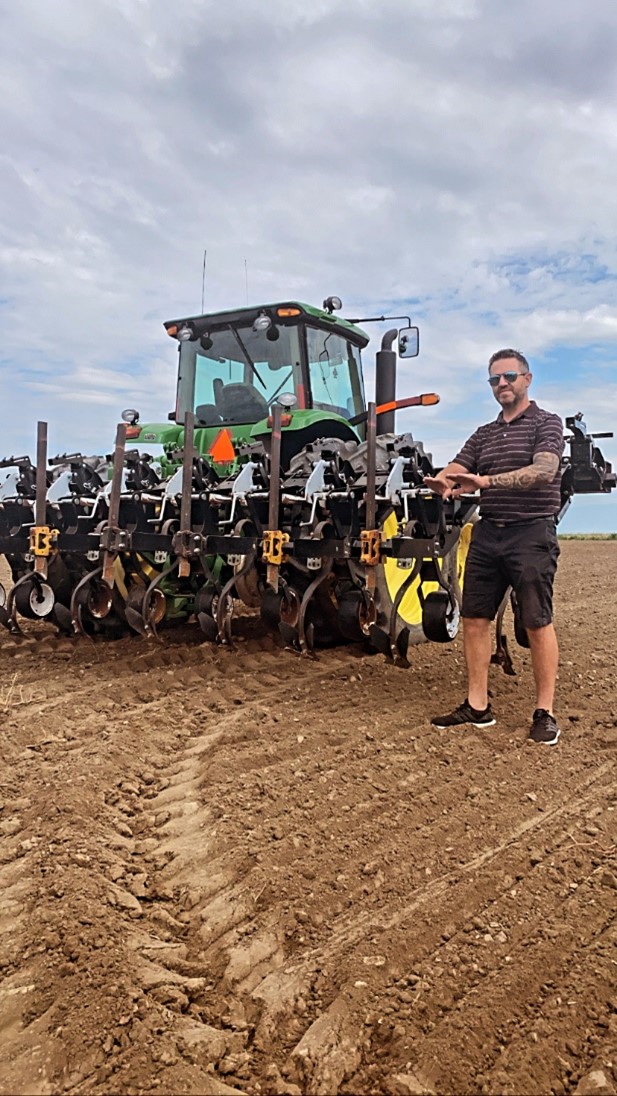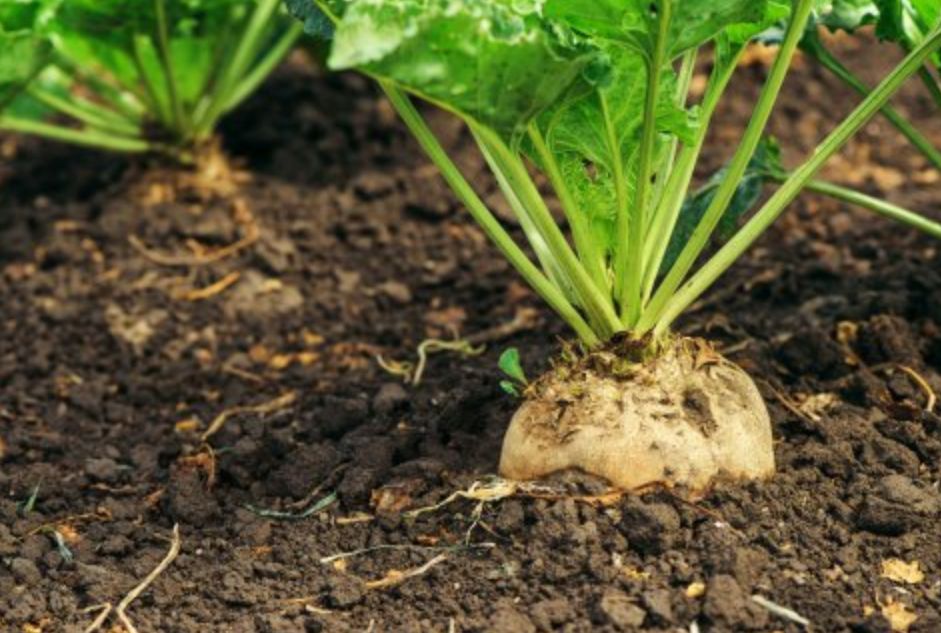Featured Grower - Darren Klemen
Meet Darren Klemen!
My name is Darren Klemen and along with my wife Denise, we started our farm, D Klemen Farms Ltd., just after we were married. We are a third-generation operation – my grandparents bought this place in the mid-sixties, then my dad was here and now we’re here. We have five children, all of which who are still working on schooling, so right now it’s just me, Denise and our full-time employee running things. We farm 1,400 acres which includes sugar beets, cereal grains, green peas, dried beans and seed canola.
How did you get your start in farming?
I was born and raised on this farm and from a young age I was involved in baling hay and hauling all our wheat to town in a single axle truck. Later on, my grandpa got me into raising purebred cattle so I actually started out as more of a cattleman. Sometime in between there, I got a sugar beet contract and realized that I couldn’t be a cattle farmer and a dirt
farmer at the same time. So we made the decision to sell the cows and with sugar beets being so intensive, that’s when I really had to make the decision to have both feet in.
I’ve gotten a lot of encouragement along the way from my wife, whose helped us expand and get bigger. She does the books and she’s helped us make it.
What technological advancements have you seen during your farming career?
When I first started, we were using flood irrigation and wheel moves on most of our land. Switching everything to pivots was probably one of our biggest advancements, followed by GPS and auto-steer farming. Those two changes have allowed us to become much more efficient in our practices. We’re no longer overlapping in the fields and it’s made farming a breeze when you’re in the tractor. There is still lots of prep work behind that technology, but we’ve been able to increase our operating hours.
Other than that, there have been a lot of advancements in varieties and research in chemicals. Those are advantages that have made us more productive on less acres and the beet industry is a perfect example of that. When I started growing my own beets around 1999, the ‘old guys’ always told me to ‘get 20 tonne and you’ll be happy.’ But now, we’re achieving almost double that and that’s all because of our seed varieties, genetic modification and technological advantages.
How has the use of GM beet seed impacted your operations?
I am a huge proponent of genetically modified, Roundup ready seed. In regard to sugar beets, this practice has not only eliminated a ton of time constraints, but it has also allowed us to reduce our carbon footprint and put a much safer product on our crop.
Before genetically modified sugar beet seed, we were spraying a ‘chemical cocktail’ that was sometimes made up of seven different herbicides. It was so costly that we had to put it on as a ‘micro-rate.’ We were only spraying 1/3 of our field at any given time in a ‘band’ to hit our beets. We were hitting them at such low rates, that it was barely effective on the weeds, but still effective enough to give the sugar beets herbicide injury, wilting and setting back the crop. Now, with Roundup, we’re able to avoid all those issues. We’ve reduced spraying substantially, we’re in the field less, our crop is healthier and we’ve been able to see our plant health go to second to none.
What are you most excited for with the future of ag and farming?
For us, we’re probably most excited to see some of the children take a more active role on the farm. But with that being said, it can be quite difficult to look into the future. Farming is a business where you’re always in the ‘now.’ While we’re consistently seeing how we can make things better moving forward, we always take it one harvest at a time. However, a lot of the things we’ve been excited about are here already, like Roundup ready sugar beets. It would definitely be great to see varieties with different GM options, giving us new tools and capabilities, especially as there is some concern surrounding the build up of resistance.
What are some of your biggest concerns about the future of farming?
Aside from consumer hesitancy and a lack of knowledge toward GM products, government policy is our biggest concern and threat. Specifically, the biggest threat right now is the Federal government trying to implement a 30% reduction in fertilizer.
Without consultation from the farming groups, I don’t believe that’s a feasible way to tell farmers how to run their business. At the end of the day, we are already stewards of our land and our margins are thin. We’re using fertilizer as properly as we can, without applying more than any given crop needs. To cut fertilizer when it’s an essential piece of profitability and production, is extremely concerning. In some cases, cutting 30% could equate to a 40-45% yield reduction. By cutting fertilizer, you not only cut food supplies, but then we also begin looking at global food shortages. While we enjoy farming, we still have to be profitable and provide enough for the population.









